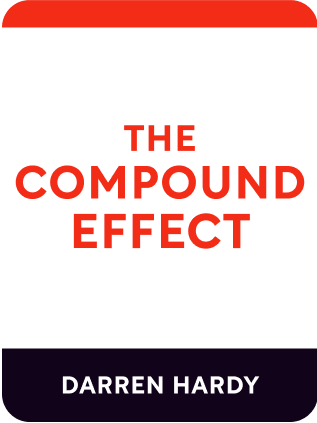

This article is an excerpt from the Shortform book guide to "The Compound Effect" by Darren Hardy. Shortform has the world's best summaries and analyses of books you should be reading.
Like this article? Sign up for a free trial here .
What is “why power”? How can defining the reasons and motives behind your goals help you change your life for the better?
According to Darren Hardy, the author of The Compound Effect, changing your life through the force of willpower is a dead undertaking. Instead of willpower, Hardy suggests you draw upon what he calls “why power.”
Here is how finding your “why power” can help you in your quest for success.
What Is “Why Power”?
Changing ingrained bad habits takes more than willpower. Willpower has likely failed you in the past. Think of resolutions that were abandoned and diets that went by the wayside. Willpower is not strong enough to keep you from sliding back into your ingrained bad habits.
You’ve got to figure out what you want and why you want it or you’ll give up too easily. Your “why” has to be incredibly motivating because it must ignite your enthusiasm and passion—emotions that will fuel your persistence. Knowing your “why” helps you stick through the hard stuff.
Example: Your “Why Power”
Think about a wooden plank lying on the ground. If someone offered you $20 to walk across it, you’d do it in a heartbeat—easy money. But if that same plank were lying across two 100-story buildings, you wouldn’t even consider the $20 offer. If your child, however, was on the opposite building from you and was in danger, you would walk that plank without thinking —and without caring about the $20. When your why is big enough—in this case, saving your child—you can perform any action.
Your true “why power” won’t be related to money or material goals. It has to come from a deeper place that gets your heart and soul into the endeavor. Many successful people with all the material wealth they could want are deeply unhappy, dealing with fear and frustration. This is because focusing on achievement without fulfillment leaves you empty. Finding your core motivation is key because only a very powerful why will bring your true fulfillment.
Defining Your Core Values
Your core values lead to your “why power.” Defining your core values is a critical step when you’re trying to change your life; without clearly defined values, you could fall victim to making choices that are in conflict with what you want. For example, if you value integrity but hang out with people who lie and cheat, this creates a conflict.
When you have clearly defined core values, making decisions is easier because you can simply ask yourself which choice aligns with those values. If something doesn’t align, you can forget about it.
Identifying Who or What You’re Fighting—Your “Enemies”
A motivating fight can give you strength and purpose. Throughout history, fighting an enemy has led to innovation and transformation. Think about David and Goliath, Rocky and Apollo Creed, or Microsoft and Apple.
Motivation doesn’t always come from a noble place; a negative emotion or experience can fuel your “why power” and bring about successful results. We all have the ability to take hurtful experiences from our past and use them to fuel constructive change. For example, the great football coach Pete Carroll grew up with a chip on his shoulder because he was so small. He felt the need to fight and prove his worth and was rewarded with great success.
Setting and Achieving Goals
To achieve success, It is important to learn how to set and achieve goals effectively.
Clearly defined goals in all areas of your life—business, wealth, health, and relationships—are important because, once achieved, they can fill your life with abundance. The Compound Effect is always working, but without a clearly defined goal, it cannot bring you to a better life.
When you define your goals, you give your brain something to focus on and look for, invoking the Law of Attraction. To many of us, the Law of Attraction seems mysterious and esoteric, but in reality, it’s quite logical. We only see, hear, and experience a fraction of the things going on around us. So when you clearly define, picture, and focus on a goal, you are able to draw it into your life. It wasn’t accessible or visible to you until your thoughts were able to focus on it and lead your brain to see it.
For example, say you are considering buying a new type of car. Suddenly you see that make and model everywhere around you when you had never noticed them before. Did they just appear? Of course not—they were always there, but you weren’t paying attention. They were there but they didn’t “exist” for you.
When you clearly define your goals, you experience the world very differently, attracting the opportunities, people and resources you need to achieve that goal. These things were there all along, but they were invisible to you.
Become the Person You Want to Be
Once you have clearly defined a goal, the next step isn’t figuring out what you need to do to achieve it, but rather who you must become to achieve your goal.
Jim Rohn perfectly captures this idea: “If you want to have more, you have to become more…Success is something you attract by the person you become.”
Think about the attributes you need to have to achieve your goal. Without these, you can do all the right things but still never succeed.

———End of Preview———
Like what you just read? Read the rest of the world's best book summary and analysis of Darren Hardy's "The Compound Effect" at Shortform .
Here's what you'll find in our full The Compound Effect summary :
- How small, daily actions can add up to big successes (or failures)
- Why it's easier to rely on the compound effect over time instead of taking big action all at once
- How it's possible to be better off starting with a penny than $3 million






